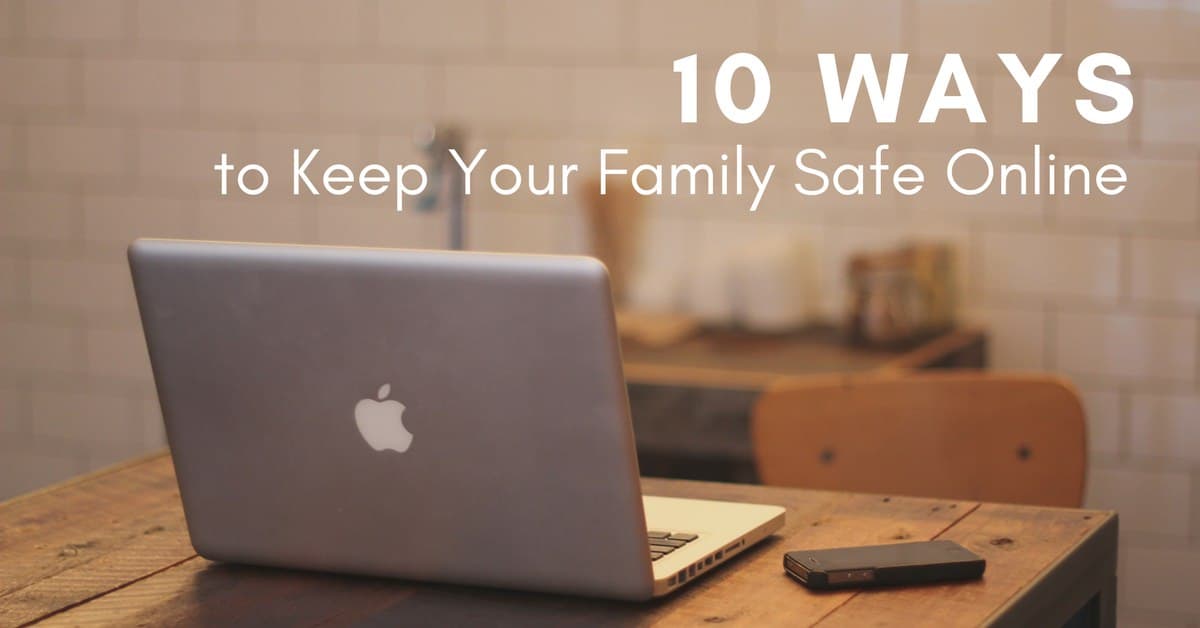
by Kari Ann Fallon
While it may seem harmless, the Internet poses plenty of financial and security dangers to the average family.
1. Watermark photos of your family. Watermarking photographs keeps them secure. If someone wants to steal photos from you, it will be harder if you have a personal watermark covering the photo. If your photos are used without your permission, watermarking them will make it easier to prove the pictures are yours.
2. Have full access to your children’s phones. Children can be trusting and don’t always have the best judgment, putting them at a higher risk for being taken advantage of. If your child has a smartphone, go through it occasionally as see what they’re up to. Be sure to explain why it’s unsafe to give out personal information and have consequences in place if they do.
3. Don’t use the same password for all of your accounts. If your device is stolen, you’re at risk of your accounts being hacked. If your passwords are the same for all of your accounts, it will be easier to hack all of them.
4. Don’t log in to accounts from WiFi networks you don’t trust. If you’re logged in to an unsecured WiFi network, be aware that people may be watching what you’re doing. They will be able to access everything from emails and texts to secure passwords. The next time you’re at a coffee shop and you’re curious what your bank balance is, switch to your data setting or wait until you get home or to your office before you check.
5. Always have a lock on your devices. This may not keep your device from being stolen, but it will make it harder for just anyone to access your private information. Anything you can do to discourage a thief from finding private information about your family is advisable. Don’t let the extra second it takes to unlock your phone keep you from protecting your family.
6. Don’t give out personal information to strangers. This may seem like common sense, but never give out your bank information to someone you don’t know. There are a lot of scams and it’s easy to get caught up in the money being offered to you. If it sounds too good to be true, it probably is. As well as bank information, it’s dangerous to give your address and full name to strangers. This information can aid them in stealing your identity.
7. Keep online friendships online. While it can be very tempting to meet your online friend in person, it’s not a good idea. It’s easy to lie when hiding behind a screen, so your friend might not actually be who they say they are. Stay safe by keeping online relationships online.
8. Utilize safety features on apps and websites you use. Some apps and websites have locks that can be enabled or security settings that limit who can see your information. Take advantage of this extra protection. Or go a step further and make your account private.
9. Be mindful of what you post online. If your house is going to be empty while you go on vacation, don’t post pictures of your trip while you’re away. This is an advertisement for criminals to break into your house. While you’re at it, don’t post anything online that you wouldn’t want your boss to see. It’s become common for employers to check up on their employees through social media.
10. Don’t let bullies get you down. Some people use the Internet to harass others. Some bullies even suicide-bait their victims. Be aware that these people are toxic and don’t take them seriously. If you feel they’re taking things too far, don’t be afraid to report them to the police. Cyber bullying is not okay and should never be tolerated.

